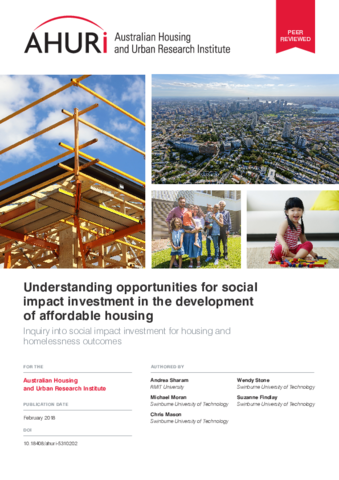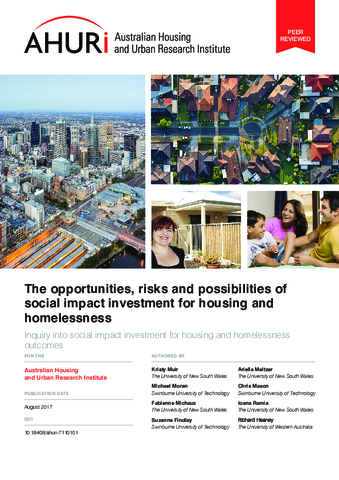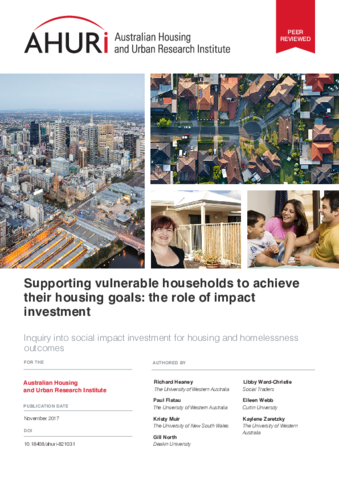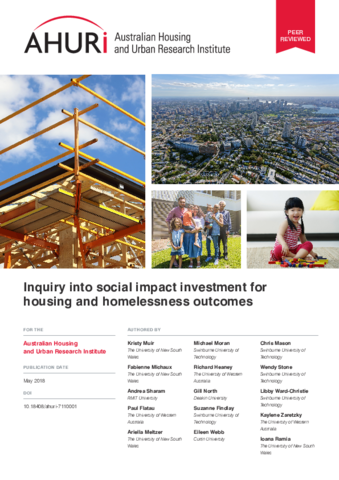This is the final report for the AHURI Inquiry into social impact investment for housing and homelessness outcomes. Social impact investment (SII) is investment intending to generate social and financial returns, while actively measuring both. It is a growing mechanism for using capital from investors to finance solutions to complex social problems.
Government has a key enabling role in developing the SII market for housing and homelessness in Australia as market builder, steward and participant (commissioner and funder of services). Government also controls many of the levers that could remove barriers for other actors in the system, as well as many of the levers in the broader housing market that influence both the size and shape of the housing and homelessness challenge.
SII cannot supplant government funding and investment. What SII may be able to do—alongside other government funding—is enhance the return on government’s (increased and/or redirected) investment in housing and homelessness by attracting other sources of capital (including mainstream capital) with different capabilities and risk return objectives.
Consideration should be given to appropriate mechanisms for how and by whom accountability for outcomes will occur (including who will pay), to selection of appropriate indicators and to how rigorous measurement will be established within SII. This finding underscores the need to return to the core definitional elements of SII when developing policy and designing SII solutions to promote the best outcomes. There may also be circumstances where outcomes-based payments are more appropriate than a social impact finance instrument.





